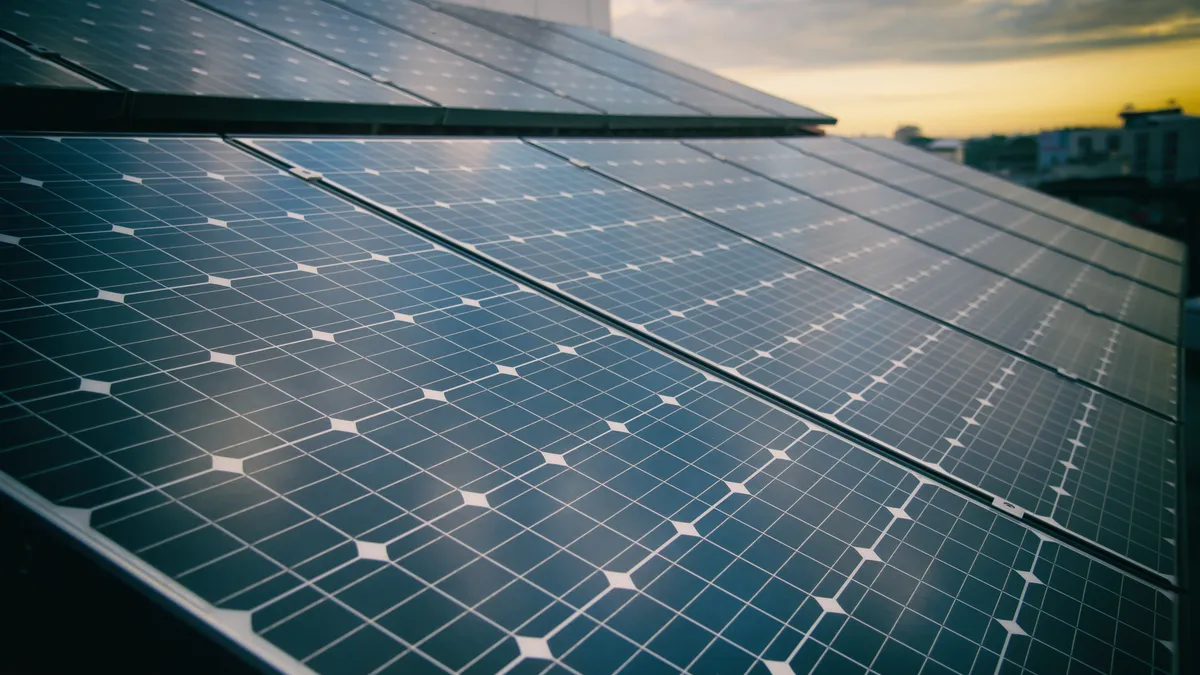Dive Brief:
- A week after SolarCity rolled out what they termed as the world's most-efficient solar module, Panasonic is touting its just-released new module as the most efficient with 22.5% module-level efficiency compared to SolarCity's 22.04%, PV Magazine reports. The efficiency rating refers to the proportion of the sun's energy a module converts into electricity.
- The 22.5% module level efficiency was certified by Japan’s National Institute of Advanced Industrial Science and Technology.
- Panasonic also announced it will introduce its 330-watt HIT N330 PV module, which claims a 19.7% module level efficiency, into the United Kingdom market within days. Its high nameplate capacity makes the module ideal for markets like the UK where buyers are moving toward onsite consumption, according to Panasonic.
Dive Insight:
Just a week ago, top solar installer SolarCity announced it will begin manufacturing a 22.04% efficient solar module, which CTO Peter Rive called the world’s most efficient rooftop solar panel.
But now some competition entered the market, with Japan's Panasonic claiming the top-efficient module prize as its own. Panasonic built the module using its solar cells, which at a 25.6% efficiency rating, set the cell level efficiency world record in 2014.
SolarCity's modules are built with a high efficiency cell technology developed by Silevo, which SolarCity acquired in 2014. The modules combine elements of two standard solar cell designs, increasing power over current technologies without an increase in module size, according to Rive.
The 22.04% efficiency rating topped SunPower’s 21.5% efficient panels, which were previously considered the most efficient rooftop solar modules, according to the San Francisco Chronicle. But SunPower recently reported its panels have actually hit closer to the 23% efficiency mark, according to Greentech Media.
The world record for thin film was set earlier this year by First Solar when its cadmium telluride PV module was measured and certified by the Department of Energy National Renewable Energy Laboratory at 18.6% efficiency. First Solar's module was built with 21.5% efficient solar cells.













